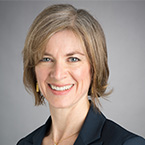
Globally celebrated for her development of the CRISPR (clustered regularly interspaced short palindromic repeats)-Cas9 (CRISPR associated protein 9) gene editing system, Dr. Doudna has significantly transformed biomedical research by establishing a straightforward approach to genome manipulation. Dr. Doudna ‘s efforts associated with the establishment of the CRISPR-Cas9 system began while she was studying how various bacteria counteract viral infection. She investigated how select bacteria utilize CRISPRs to store viral DNA sequences within their genomic loci and how storage of these sequences allows for the prevention of subsequent infections from similar viruses.
Seeking to understand this process further, she began to collaborate with Dr. Emmanuelle Charpentier, who had been working to define the various molecular components associated with CRISPR-associated viral immunity in Streptococcus pyogenes. Together they demonstrated that the CRISPR bacterial immune defense system could be harnessed as a platform by which to add or delete select DNA sequences in a given cell or organism. Specifically, they proved that exact DNA sequences could be cleaved by the RNA-guided DNA endonuclease, Cas9 and that Cas9-mediated double-stranded DNA (dsDNA) breaks could be directed by single-guide RNA (sgRNA) sequences, which possess the ability to imitate the function of CRISPR RNA (crRNA) and trans-activating crRNA (tracrRNA) complexes normally required for Cas9 recruitment to DNA. Dr. Doudna further demonstrated that Cas9-mediated gene editing can not only involve single gene sequences, but can also be “multiplexed” to allow for large scale genomic changes by utilizing various sgRNAs to target multiple sites for site-specific dsDNA breaks.
Her revolutionary work is expected to lead to tremendous advances in cancer science, by providing a powerful system that can be harnessed to inform the development of new cancer therapeutics and improve our understanding of tumor initiation and progression.
Career Highlights
2020 Nobel Prize in Chemistry
2018 Microbiology Society Prize Medal Winner
2018 American Cancer Society Medal of Honor
2018 Kavli Prize in Nanoscience
2018 V de Vida Award
2018 Croonian Medal
2018 AACR-Irving Weinstein Foundation Distinguished Lectureship
2018 NAS Award in Chemical Sciences
2017 Albany Medical Center Prize in Medicine and Biomedical Research
2017 Japan Prize
2016 Tang Prize
2015 Meira and Shaul G. Massry Prize
2015 Peter and Patricia Gruber Foundation Award in Genetics
2015 Princess of Asturias Award for Technical and Scientific Research
2015 Time 100, Time Magazine ‘s 100 Most Influential People in the World
2014 Breakthrough Prize in Life Sciences
2014 Dr. Paul Janssen Award for Biomedical Research
2014 Lurie Prize in Biomedical Sciences, Foundation for the National Institutes of Health
2013 Hans Neurath Award, Protein Society
2010 Elected Member, Institute of Medicine
2008 Elected Fellow, American Association for the Advancement of Science
2003 Elected Fellow, American Academy of Arts and Sciences
2002 Elected Member, National Academy of Sciences, Washington, D.C.
2000 Alan T. Waterman Award, National Science Foundation
1999 William O. Baker Award for Initiatives in Research, National Academy of Sciences